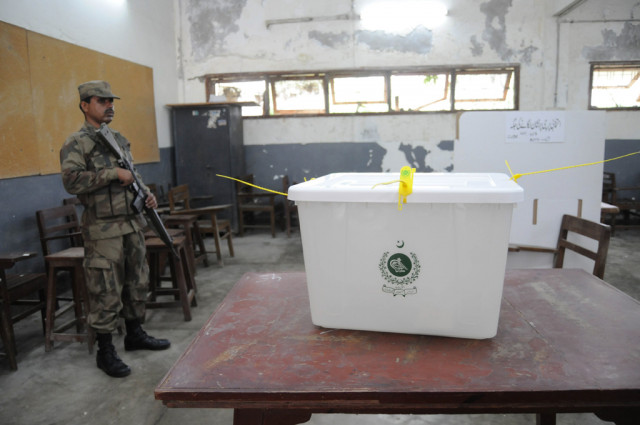FAFEN proposes poll audit methodology to end political deadlock
Proposal gives option of conducting an audit while remaining within the legal framework of the ECP

The proposal gives an option to conduct an audit while remaining within the legal framework of the Election Commission of Pakistan (ECP) and help the warring Pakistan Tehreek e Insaaf (PTI) and ruling Pakistan Muslim League-Nawaz (PML-N) reach an agreement on terms of reference for scrutiny of last year’s general elections.
The three-stage proposed audit methodology is based on the legal requirements enunciated in the Representation of People’s Act 1976 and the Conduct of Election Rules 1977.
The first stage of investigation will allow determining the actual effect of an irregularity on the election result in any of the 272 national and 577 provincial constituencies down to the polling station level.
The suggested audit steps are based on scrutiny and analysis of election result forms and other legal documents, which are to be retained by the ECP under various provisions of law and rules.
Fafen head Mudasir Rizvi told The Express Tribune that an investigating team may call the polling station result-wise of all constituencies, which are available in Form 14.
The form carries results of a polling station, which, under the law, should be displayed outside the polling station after the counting of ballots.
The returning officer compiles the consolidated results on Form 16, based on the vote count in Form 14.
An audit of these forms can determine the number of polling stations where irregularities took place.
The investigation team may check out the number of these polling stations where irregularities took place and may also check the scale of anomalies. If the number of such polling stations in a constituency are high, and it can affect the overall result of in the constituency, the ECP may annul the polls. Similarly, other forms related to ballot count and other election related material can be probed.
The second stage involves the determination of the total number of constituencies, if any, with invalid or problematic election results, that may cause any potential or actual change in the majority in the national and/or provincial assemblies.
The third stage deals with legal provisions to determine the intent of election officials to ascertain whether the irregularities were acts of omission or commission. The findings will trigger proceedings by the ECP under Section 95 of the Representation of People’s Act 1976 against all election officials who are found to be involved in irregularities whether intentionally or by omission without reasonable justification.
Through these three steps the investigating body if finds out that number of constituencies where gross irregularities took place were very high, it might question the legality of overall elections.
According to Fafen, the contesting parties should conclude the terms of reference of an election investigation that could determine, based on concrete evidence, whether or not the election result in one or more constituencies reflects the will of the voters who cast ballots on election day.
This approach, the organisation says, would also help identify systemic and procedural flaws in the existing electoral framework as a contribution to the ongoing electoral reforms process being led by the Parliamentary Committee for Electoral Reforms.



















COMMENTS
Comments are moderated and generally will be posted if they are on-topic and not abusive.
For more information, please see our Comments FAQ